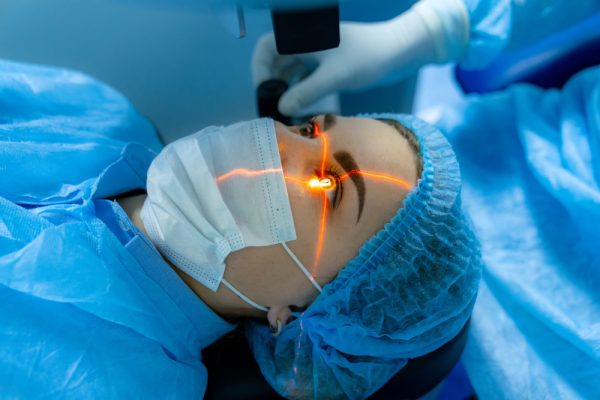
Community healthcare is a term that refers to care outside of hospital, including public health, but separate from primary care. Over recent years its remit has expanded considerably and many services previously provided in a hospital setting are now provided in the community in community clinics.
Recent plans for the NHS, including integrated care systems (ICS), have focused on moving care away from hospitals and into the community, thus raising the profile of community healthcare and its potential.
Privatisation
The privatisation of community healthcare has been ongoing since 2005, but the rate of privatisation has accelerated since the Health & Social Care Act 2012.
In 2005 a government policy to separate community services from the Primary Care Trusts (PCTs) was put in place. Many of the community services were set up as stand-alone community care trusts, but still part of the NHS, however in several cases community services were 'spun-off' as social enterprise companies or community interest companies (CIC). The CICs are not part of the NHS and in many respects are no different from a private company.
Since 2012, more and more contracts for community healthcare have been awarded to non-NHS organisations, including private companies, charities and CICs.
One of the most striking early contracts was awarded to Virgin Care (now HCRG Care) in 2012; a five year contract with NHS Surrey to deliver community services across much of the county. The £450 million contract covered community health services in South West and North West Surrey, as well as some provided county-wide such as prison healthcare and sexual health services. The services continued to be known as Surrey Community Health. At the end of this contract, the contract was split into smaller contracts and Virgin Care won only a small part of one contract.
In some areas CCGs have opted for large contracts that cover many services, whilst in other CCG areas, services are carried out by a number of companies and organisations.
CCGs in Bath and North East Somerset and Essex have opted for a large contract that covers almost all services.
In November 2016 Virgin Care (now HCRG Care) was awarded a seven year contract for community services in Bath and North East Somerset. The contract, worth around £700 million, covers over 200 health and social care services. Under the contract, Virgin Care will run three statutory services – adult social care, continuing healthcare and children’s community health – from April 2017. HCRG Care now runs virtually all community healthcare and public health services in the area.
In Essex in November 2016, the county council awarded a seven year contract to Virgin Care (now HCRG Care), to run its Pre-Birth to 19 Health, Wellbeing and Family Support Service across Essex. The contract began in April 2017. The service combined a range of existing services, including the Healthy Child Programme, Healthy Schools, Family Nurse Partnership and children’s centres. This contract contains social care as well as health care. The contract is worth £354.6 million, but if further services are added and an extension of three years, the contract could be worth over £800 million.
A major opportunity for private companies in community care is the development of community diagnostic hubs (CDH). Planning for these new facilities had been underway since before the pandemic, as part of a review conducted by Professor Mike Richards. The Richards review said community diagnostics hubs should be separate from acute settings, releasing pressure on hospitals and should provide a wide range of services including: imaging capacity: including CT, MRI, ultrasound, plain X-ray; cardiorespiratory capacity: including echocardiography, ECG and rhythm monitoring, spirometry and some lung function tests, support for sleep studies, blood pressure monitoring, oximetry, blood gas analysis; pathology services: including phlebotomy; endoscopy facilities; and consulting and reporting rooms.
In 2021 the scheme was increased in size to help cope with the scale of diagnostic waiting list that the NHS is now facing. In mid-2021 a NHS framework contract worth £10bn was advertised by NHS England and companies invited to bid to run 150 new community diagnostic facilities. Further details can be found on our Diagnostics/Pathology page.
Community services also includes mental health services and more details of privatisation in this area can be found on a separate page here.
Recent contracts in community services include:
In September 2020, CCGs in Birmingham and surrounding counties awarded a place on a £37.5m contract for community audiology services to several companies, including Mediscan Diagnostic Services and Modality.
Integration and privatisation
All recent plans for reform of the NHS involve the development of greater integration between services and the movement of care away from hospitals into the community. As a result, community healthcare is the basis for the development of new models of integrated care; known as integrated care systems (ICS). An ICS could encompass all healthcare services for a defined population and a contract, known as an integrated care provider (ICP) contract, to organise and provide the services could be held by a single organisation.
See Integrated Care Systems for more information.
Companies
The community healthcare sector is dominated by community interest companies (CICs) and the private company HCRG Care.
HCRG Care (Virgin Care)
HCRG Care (previously Virgin Care) is a major player in the market for NHS services and over the past seven years the company has been awarded contracts worth well over £2 billion, with several large contracts in community health. As Virgin Care, the company has probably been the most active private company in the area of NHS contracts for community health and in 2016 the company made the move into adult social care.
Notable contracts include in community services in Bath & North East Somerset and in Essex, urgent and community care in West Lancashire, an integrated community musculoskeletal (MSK) Service in Luton, North Kent adult community services and children's community services in Wiltshire. A more detailed overview of the company can be found here.
Locala
Locala Community Partnerships is an independent Community Interest Company (CIC) providing NHS community services to over 400,000 people in Kirklees and surrounds. Services are provided at home and in clinics, schools and health centres by health visitors, district nurses, therapists and other health care professionals.
City Healthcare Partnership
City Healthcare Partnership is a CIC that provides a wide range of health and care services across Hull, East Riding, Knowsley, Wigan and St Helens. The company provides over 80 services in community settings, including end of life care, district nursing, TB clinics, community paediatric nursing, health visitors, school nurses, sexual health, dentistry, public health, prison health, GP practices, minor injury units, eating disorders and psychological wellbeing. It employs around 1900 people.
Sirona
Sirona, a CIC, is the major provider of community healthcare in the Bristol, North Somerset and South Gloucestershire CCG areas. In September 2019 it was awarded a contract worth £1.06 billion covering adult community health services in these areas. The contract is the largest ever clinical contract to be awarded to a single entity. The ten year contract covers all adult community health services in the CCG areas, plus several services that come under public health services..
With the award of the Bristol area contract, Sirona became the dominant health and care company in the Bristol, North Somerset and South Gloucestershire area for community services - both adult and children. Sirona beat two rival CICs to the contract, Bristol Community Health CIC and North Somerset Community Partnership CIC. As a result of the award, both Bristol Community Health CIC and North Somerset Community Partnership have ceased trading.
Under the £1.06 billion contract, Sirona is a prime provider, which allows the company to sub-contract services to other organisations. Sirona had already provided adult community services in just the South Gloucestershire area under a previous contract.
Sirona has also gradually taken over children’s community health services in the area. Under a contract from 2017, Sirona runs children’s services across Bristol and South Gloucestershire as the lead in a partnership that included Bristol Community Health CIC (now ceased trading), Avon and Wiltshire Mental Health Partnership Trust and University Hospitals Bristol FT. The five year contract is worth £34.6m a year, and covers health visiting, school nursing, child and adolescent mental health, community paediatricians, and community nursing until 2022.
Then in January 2020, Sirona took over the contract for specialist children’s community health services in North Somerset. These services include community paediatrics, physiotherapy and speech and language therapy; as well as Child and Adolescent Mental Health Services (CAMHS). These services had all been run by Weston Area Health NHS Trust, but it decided to withdraw from the contract. This was reported by Bristol, North Somerset and South Gloucestershire (BNSSG) CCG as a transfer and no competitive tender process took place.
Other organisations include Provide CIC and Anglian Community Enterprise.
Background
What services come under community healthcare?
Community services are numerous and varied, but for ease of discussion we deal in more detail with community mental health services in a separate section.
Community healthcare takes place in people’s homes or clinics. It includes services provided by a diverse range of staff, including community nurses and district nurses, health visitors, school nurses, physiotherapists, occupational therapists, podiatrists and language therapists. Community healthcare works with people with long-term conditions, such as diabetes or COPD, to enable them to manage their condition and prevent exacerbations that lead to hospital admissions. It also works with the elderly and frail to reduce hospital admissions. Community healthcare teams work closely with social services.
Community healthcare includes public health, which covers immunisations, school nurses, health visitors, sexual health services, smoking cessation, services to tackle obesity, and the treatment of substance abuse, plus a wide number of campaigns to improve population health. Public health includes the 0-19 Healthy Child Programme which covers school nursing and health visiting.
Who commissions community healthcare?
Community healthcare, excluding public health, is commissioned by individual CCGs or groups of CCGs.
NHS England is responsible for commissioning some public health services but since 1 April 2013, most public health services have been commissioned by local councils.
Who provides community healthcare to the NHS?
Community healthcare services are provided by acute NHS trusts and stand-alone community NHS trusts, community interest companies (CICs), charities and private-for-profit companies.
There is no overall figure for the number of non-NHS organisations that provide community healthcare services, including public health.








